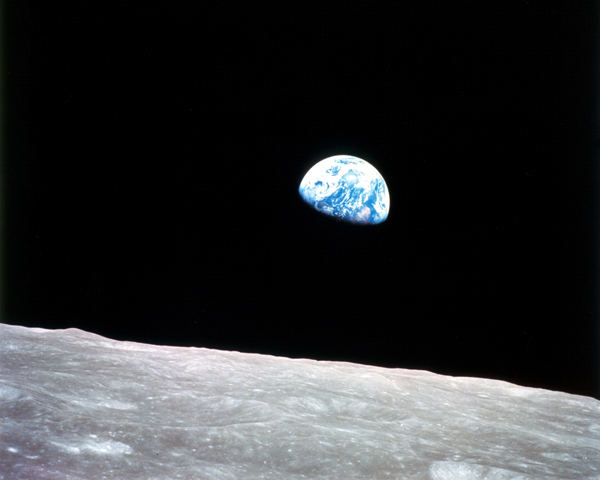Humanity and the global pandemic: If winter comes can spring be far behind?
May 5, 2021

May 5, 2021

At every stage of this crisis, political manoeuvring and a lack of global cooperation and transparency have proved a barrier to successful resolution.
It is a tragedy that in this the twenty-first century, humankind has been unable to prevent a global pandemic, the devastating impact of which could have been entirely avoidable. Had the peoples and nations of the world set their minds to the collective welfare of humanity and its prosperity, solutions would have easily been within reach. Instead, resources that should have been used over past decades for protection of the entire human race, have been used for the perpetuation of conflict and the satisfaction of ambition and greed. At every stage of this crisis, political manoeuvring and a lack of global cooperation and transparency have proved a barrier to successful resolution.
To put into perspective the present world situation and the tremendous challenge facing humanity in responding to this crisis, we must take a closer look at the historical processes that have shaped human society to the present day. The story of humankind on this planet has been one of change and evolution. As a social being, mankind has moved from simpler ways of living, wandering in small numbers in pastures or living in caves, to forming clans, villages, city states and nations. Humankind has brought about magnificent civilisations including those of the Ancient Chinese and the Indus valley, the Persian, Greek, Roman, Inca, Aztec, Songhai, Mali, and Egyptian and Islamic civilisations, and more recently Western civilisation arising out of the European Renaissance. Scientists, writers, philosophers, inventors, artisans, and those whom we call Prophets, have made special contributions to the advancement of society. Step by step, we have moved into the sphere of abstract visualisation and conceptual thinking.
Related article by Augusto Lopez-Claros:
We have developed more profound scientific insights and deeper levels of philosophical discourse. Concepts of justice, equality and human rights have, albeit gradually, become more accepted by humanity. Laws and regulations have been devised to safeguard harmonious relations within and between societies. The instinctive tendencies for self-preservation and self-interest are being transformed gradually into compassion and altruism, qualities that find expression uniquely in the human species. Today the internet facilitates the rapid exchange of ideas and scientific and technical knowledge around the globe. Conversations by millions of people across the world each and every minute connect hearts and minds and allow us to see the earth as ‘one country and mankind its citizens’, much as astronauts landing on the moon have seen this beautiful blue planet, with no sign of the fictitious boundaries of human imagining.

Astounding as humanity’s progress has been since ancient times, and however remarkable recent advancements in science and innovations in technology, these strides are only early stages in an ever-advancing civilisation. We cannot visualise at this time the inherent human potentialities that are yet to be realised and their full implications for a future global society.
The stages of human social evolution are analogous to those of the developing human being from childhood to maturity. In many instances the path of human maturation has been mired in conflict, bloodshed, disease, and famine, caused primarily by human ignorance and perversity. Prejudice, animosity, and misconceptions have persisted, often passing from one generation to the next. In more recent times, nationalist ideologies, escalating social and economic injustice, and practices that lead to the degradation of the natural environment and human life itself have become more widespread. The result has been prolonged periods of intense suffering for millions of human beings. These lamentable circumstances prevail in almost all communities around the world today, challenging social cohesion and precluding our true collective happiness.
Perhaps after this crisis, humanity will awaken to the need for a global civilization based on equity and justice
Now a devastating global pandemic that knows no boundaries: black or white, rich or poor, East or West, Hindu or Muslim, is shaking the very foundations of many an old and mighty mansion. Whatever was considered to be of worth, be it riches, fame or power, the minutest unseen entity can destroy within the span of a few short days. Whatever sense of safety nations or peoples may have cherished—to the exclusion of the rest of humanity—is shown to be a fallacy in the face of a virus that spreads swiftly from one locality to an entire, interconnected planet. Ideologies that once fuelled passions of religious fanaticism, of racial superiority, national prejudice, or economic division are challenged and cannot survive, as a fractious and divided humanity, still battling the turmoil and tumult of adolescence, finds itself incapable of administering a truly global challenge.
Perhaps after this crisis, humanity will awaken to the need for a global civilization based on equity and justice, on amity and cooperation, on empathy and care for the entire human race, a civilization guided by scientific as well as ethical and spiritual principles, in which the welfare of a human being is not reduced to material or economic gain, a civilization in which it is understood that the good of the whole is conditional on the good of the part.
In the words of the poet Percy Shelley, ’The trumpet of a prophecy! O Wind, If Winter comes, can Spring be far behind?’ Will this wintertime of civilization be followed by a springtime worthy of human dignity and nobility?
Written by Rafie Mavaddat
2020 Global Governance Forum Inc. All Rights Reserved